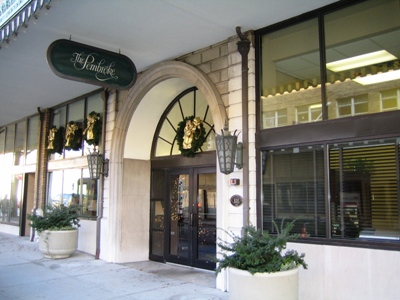Journal Entries

July, 2009 - Grey Herons
Around dusk, I started out to find the grey heron that I saw last
evening in the creek below Ayres Hall. But the storms earlier today had
left the creek muddy and swollen, rushing too fast for the heron to find
food. The rocks in the shallow creek bed that he had strolled slowly across
yesterday were under water. Walking waterfowl are hypnotic--slowly lifting,
extending, and setting down those long spindle legs, motion as fluid as the
water they are moving through, seeming never to touch solid ground. It's the
look humans strive for when suspended from ropes over a stage, like Mary
Martin as Peter Pan or Emma Thompson in Angels in America.
But humans cannot match the heron's elegant precision. When he lifted those
great wings and floated a few feet closer, I stopped breathing. There was
not a sound. How could I not want to witness that again?
I followed the creek under Neyland Drive on down to the river, thinking he
might be there. The sky was gray, the moon almost mango yellow--was that
because of the code orange ozone alert on the radio this morning? The
denser the air pollution, the more brilliant the orange sunsets. Sure
enough, there he (she?) was on the rocks at the water's edge. I passed
within a few feet above him, and he didn't seem concerned, merely swiveled
that long, elegant neck to watch me pass.
It was dark by the time I climbed the steep hill on Walnut. At the top I
paused to smell the blooming magnolia. As I passed the post office, a woman
hauling piecemeal about a half dozen bags--some luggage, some
plastic--toward the bus stop asked me for a quarter. She looked like a
nineteenth-century Russian peasant, even the scarf on her head resembled a
babushka. Her clothes, layered on, were stained, and she smelled strongly
of urine. I said, "Sorry, but I don't have my purse with me." I
asked her if she knew about the homeless shelter on Broadway, and she said
she had already been there. She seemed intelligent, like someone who, if
cleaned up and dressed in decent clothes, could step back into middle-class
society and fit. But how could that be? I wished her good night and a safe
journey and looked back once to see her carry two bags a few feet and
return for two more.
She was, I suppose, migrating like the ospreys and herons but had no nest
to return to. I wondered if the bus driver would let her take all those
bags on board, if he would hoist them for her. She stuck in my mind longer
than the heron, reminded me how much I have and how much of it is
unimportant, how quickly life passes and how much of it is wasted. For some
reason, I remembered a May Swenson poem:
How will it be
to lie in the sky
without roof or door
and wind for an eye
with cloud for shift
how will I hide?
And I was thinking of myself, not the homeless woman, and I envied her so
much vaster knowledge of suffering, knowledge that came from more than
books and movies and life's little traumas, knowledge that probably kept
her from worrying about trivialities, or fearing death.
|

 Union Avenue
Union Avenue